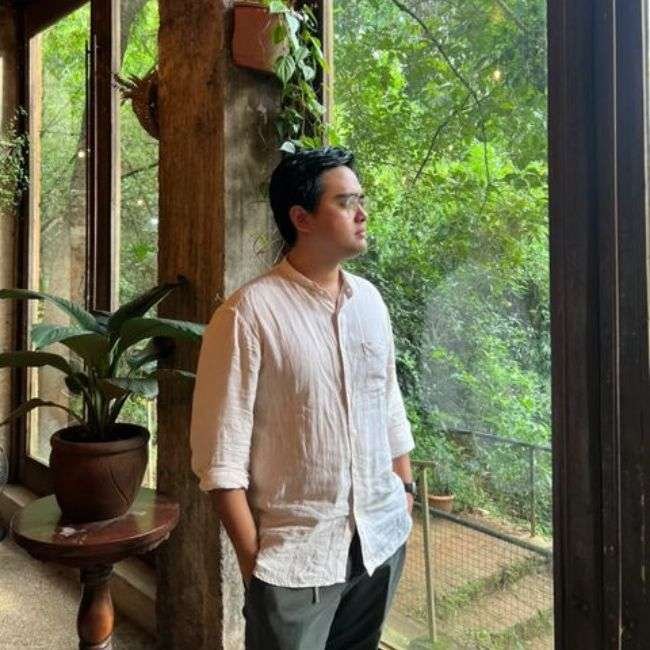SIKODIWA: Going Deep Into The Filipino Occult and Psyche

Dive into our roots with Carl Lorenz Cervantes’ passion project, Sikodiwa―where psychology meets Filipino pre-colonial and modern spirituality.

As a tarot reader and an enthusiast of all things mystical, I find discussions on the esoteric and the occult interesting. Although many are still uncomfortable with the thought of witches and spirits, these are also seen as a communal part of our human experience and Filipino culture.
This is why Sikodiwa is a haven for curious people like me who are fascinated by the beyond and who seek their individual spirituality. Thus, I gathered the courage to message their Instagram and was given the opportunity to talk with the founder, Carl Lorenz Cervantes, himself. Imagine my glee after that interview!
Consciousness is the state of awareness of both tangible and psychic things within and beyond the physical body. It’s experienced on a personal level, but it’s also a fundamental aspect of the universe.
Carl Lorenz Cervantes, Deep Roots (2022)
What is Sikodiwa?
Sikodiwa came from the blend of two Filipino words sikolohiya (psychology) and diwa (spirit or consciousness). Created by the psychology graduate Atenista and Colegio de San Juan de Letran – Manila professor, the project started back in 2020 as a study on esoteric images. During our interview, he revealed that he originally named that account Occult Psychology, then eventually changed it to Sikodiwa later on.
“I was struggling with the word ‘occult’ because of my Catholic background,” he explained. “And since I’m a Filipino Catholic, the word ‘occult,’ especially after reading Fr. Syquia and all these exorcism books―it kind of scared me. So, I moved back a little bit and saw the whole thing as something that made more sense if I looked at it from a Philippine perspective.”
The name Sikodiwa did make more sense as Cervantes decided to incorporate the local culture and indigenous beliefs with his research on consciousness, psyche, and magic. He began the page with content regarding paranormal experiences and psychic healing in the Philippines. However, he slowly discovered the connection between the psychological and spiritual in Filipino culture. This prompted his transition to a different perspective.
“When I look at the spirituality, then I realized that our culture is inherently spiritual,” he said. “Being that ‘kapwa’ is literally going out from yourself towards the others in a transcendent way. And then the connection between the paranormal, spiritual, transpersonal, and the cultural started to make so much sense to me.”
Religion and Spirituality
He recalled that as a child, he would play as a priest with his friends. However he, later on, took the role of a wizard with the same robe. It really fascinated me, that at such a young age, he already found similarities between priests and wizards. That link between both spiritual practices and beliefs eventually led him to this curiosity.

In his book, Deep Roots, he wrote,
“If we really think about it, there seems to be a lot of magic and superstitions in Catholicism. We hold on to amulets, medallions, and figurines. We have patron saints for various intentions. Saints are essentially demigods, but instead of being born divine, they were human first and earned divinity through their actions. The sign of the cross is an all-purpose spell for blessings and protection. The way we celebrate many holidays come from older pagan traditions. Given these, Catholicism can be deemed as a functioning magical system.”
As someone who grew up in a Catholic household, Cervantes recently realized how important it is to explore other spiritualities to strengthen his own faith in God. With this, he found light in the books of Ateneo’s psychology department’s late founder, Fr. Jaime Bulatao. He openly expressed his affinity towards the known pioneer of Sikolohiyang Pilipino, who greatly influenced his interests in the paranormal and Filipino culture. As both a priest and psychologist, Fr. Bulatao significantly recognized all kinds of spiritual experiences, Catholic-related or not.
“He was so open to understanding that the Catholic experience is one of many metaphors for the spiritual experience.”
Cervantes’ Deep Roots
The 38-paged essay collection, Deep Roots, tackles Cervantes’ own local psychic and spiritual experiences. He reflects on this through “a psychological perspective,” coming “to the conclusion that our experiences, as Filipinos, are transpersonal.” He further emphasized that our consciousness is not only limited to the brain.

“Psychology has always been stuck with the material perspective for the longest time,” he stated. “You know that is a limiting perspective. What if it does not come from the brain? What if the brain is just a receptor for the consciousness signal? What if it’s a tool and kind of like a television set?”
When asked about his future plans for the project, he mentioned working on creating some zines and podcast content. He also adds resources in the Sikodiwa Library from time to time. Cervantes shows no signs of stopping as he intends to continue writing more books in the future. In fact, he just recently released a 40-paged ebook entitled, Spirits, Folk Belief, and the Filipino Soul. This short research is about indigenizing the Filipino soul and acknowledging its diverse and rich history.
His strong passion for what he is doing keeps him sane despite the arduous and often terrifying profession. Above all, he credits his partner for keeping him grounded in reality. I actually witness how his thoughts tend to fly in different directions as he speaks so ardently on his advocacies. So, as a Virgo, I truly understand where he is coming from. After all, he is a Sagittarius with a Virgo moon.
Indigenize the Filipino Spirit by attending the Deep Roots virtual book launch and workshop on November 19, Saturday.
More about the author: Lea Briones
Lea Briones' love for writing and reading books led her to the path of journalism, molding her to become the outspoken feminist she is today. At fifteen, she already knew she wanted to be a writer as she aspires to be her own version of the hopeless romantic it girl, Carrie Bradshaw. This introverted Virgo sun, Leo moon, and Libra rising is an astrology enthusiast and an avid crystal collector who found solace and comfort in writing her thoughts and innermost feelings.











